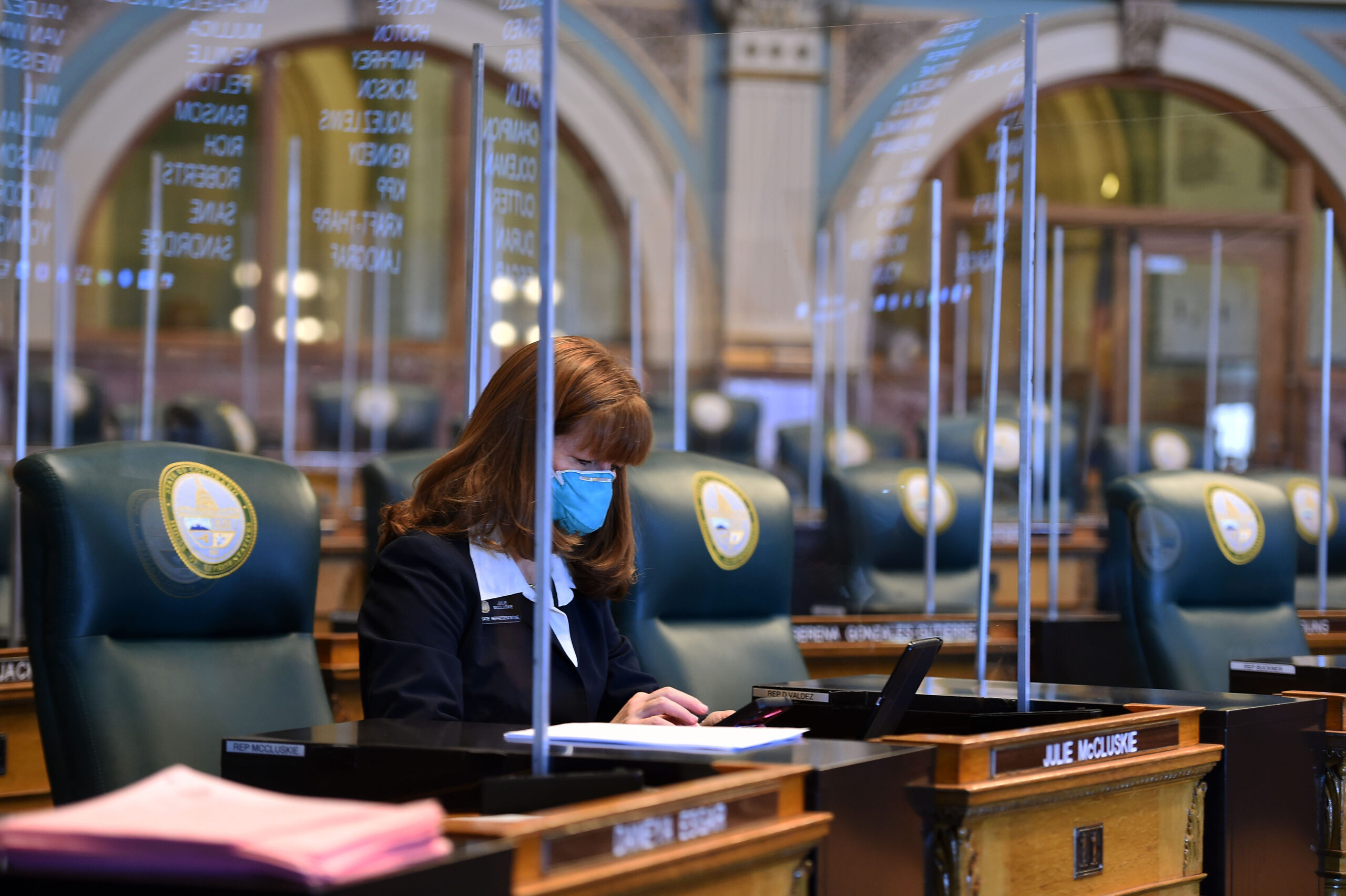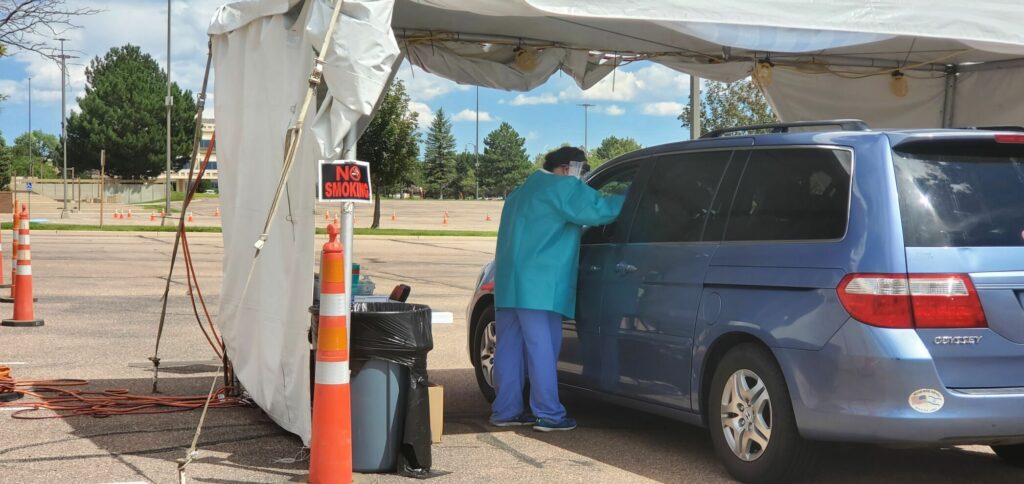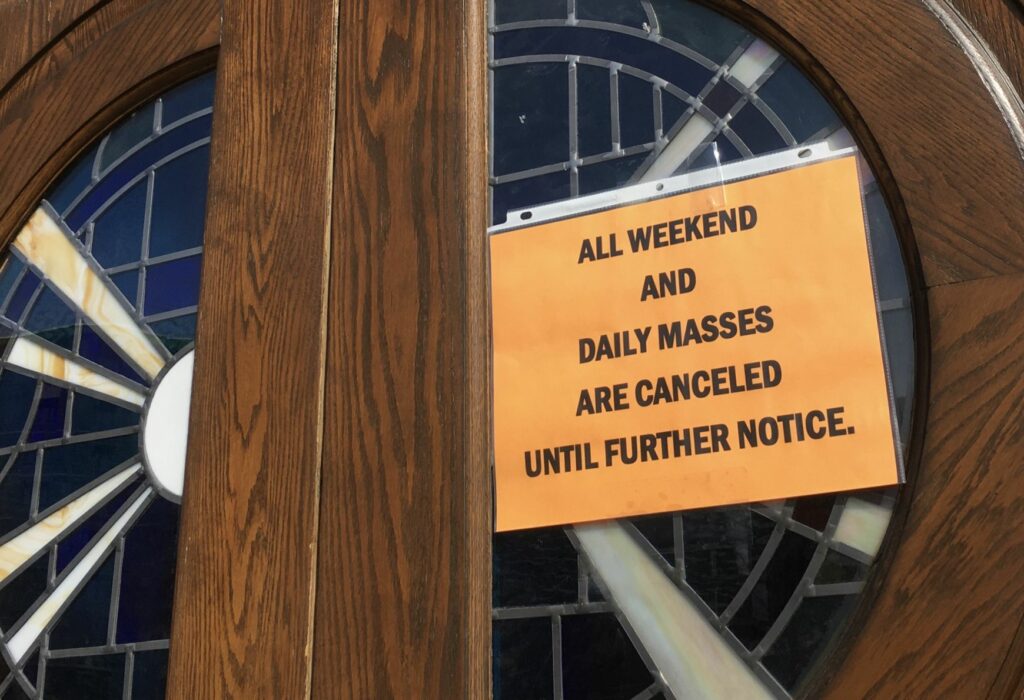House gives preliminary approval to 7 bills, rebuffing GOP amendments

The Colorado House of Representatives on Monday night debated seven bills in an extraordinary session on COVID-19 relief, with the Democratic majority consistently dispatching nearly all Republican amendments offered.
“Every amendment that comes forward can’t be a bad idea,” observed Rep. Richard Holtorf, R-Akron, at one point during the floor debate.
Among the bills given preliminary approval were the addition of $3 million in food pantry relief, which would provide an estimated 1,980,000 meals, and an allowance for restaurants and bars to deduct up to $70,000 monthly in net sales, keeping the amount that otherwise would be paid in tax.
On the food pantry bill, Republicans objected to the relatively short timelines for evaluating and distributing money to food pantries, arguing in favor of extending the deadline as the governor extends the state of emergency declaration for the pandemic.
Rep. Lori Saine, R-Firestone, offered an amendment to clarify that faith-based organizations were eligible for the grants. “Churches were the original food pantry,” she said.
The bill’s sponsor, Rep. Lisa Cutter, D-Jefferson County, endorsed Saine’s proposal, and added in response to concerns from rural lawmakers that the last round of food pantry aid went to 62 of 64 counties.
Republicans also introduced unsuccessful amendments to the sales tax measure that sought to increase eligible net sales to $140,000 and $500,000 for deduction purposes.
“I think we’re being a little chintzy by doing $70,000 net sales when we could do $140,000,” said Rep. Rod Bockenfeld, R-Watkins. “It’s not that much more expensive.” Others called the bill’s proposed relief “crumbs.”
Rep. Matt Soper, R-Delta, related that he contacted the restaurants in his districts, and none of them indicated they even hit the $70,000 threshold in the original measure.
The House also passed a $45 million influx to child care operators; an increase to Internet access for educators and families of school children; a fix to a prior occupational licensing bill; and an adjustment to insurance premium estimated taxes.
“The latest data available shows that almost 65,000 Colorado student lack access to the Internet, let along high-speed broadband necessary for participating in online schoolwork,” said Rep. Mary Young, D-Greeley, in pitching her access bill.
The child care grants to existing and emerging operators came with vocal support at a committee hearing earlier in the day, with Colorado Children’s Campaign vice president Bill Jaeger explaining that front-line workers could only do their jobs with the assistance of childcare providers. Others observed that the lack of childcare primarily affects women, with 42,000 women leaving the labor force in the state between February and September.
Nonetheless, Rep. Colin Larson, R-Littleton, was concerned again about tight time windows for applicants, especially for smaller operator who may speak a different language.
“I think we’re going to see a lot of well-established professional organizations and grant writers get a lot of benefit, and they are certainly hurting. But I think we’re going to see a lot of neighborhood providers and single-parent households with informal child care/daycare arrangements being left in the cold on this,” Larson said.
In response, bill sponsor Rep. Cathy Kipp, D-Fort Collins, said she supported the bill as it stood because there needed to be parameters for the funds.
Finally, the House approved letting counties and municipalities limit the fees that third-party food delivery services charge to restaurants.
“In some cases, the fees for delivery were so high that it didn’t make sense for restaurants to remain open,” said Rep. Shannon Bird, D-Westminster, the sponsor of the bill. “It wiped our their profit margins.”
In October, the Denver city council placed a cap on delivery fees amounting to 15% of the total bill, after reports of charges of up to 30%.
Rep. Shane Sandridge, R-Colorado Springs, retorted that he didn’t know “if the government stepping in to make sure somebody gets their Baconator hamburger from Wendy’s quicker and easier is going to help the healthcare issue” and labeled the bill “price fixing.”
Some lawmakers, including Rep. Dave Williams, R-Colorado Springs, doubted whether the bill was germane to the governor’s call for an extraordinary COVID-19 relief session. Saine worried that limiting delivery companies’ profits might create a disincentive to serve certain areas and lead to increased food insecurity.
“It’s real. I get it,” said Holtorf, who disclosed that his aunt died on Sunday with COVID-19 complications. “But we cannot continue to put restriction upon restriction upon restriction upon restriction as government continues to push down with its heavy hand.”
On Tuesday, the House will give final approval to the bills before sending them to the Senate for consideration.
Earlier in the day, House committees also killed several Republican-sponsored proposals, some of which took aim at the governor’s authority to issue emergency declarations.














